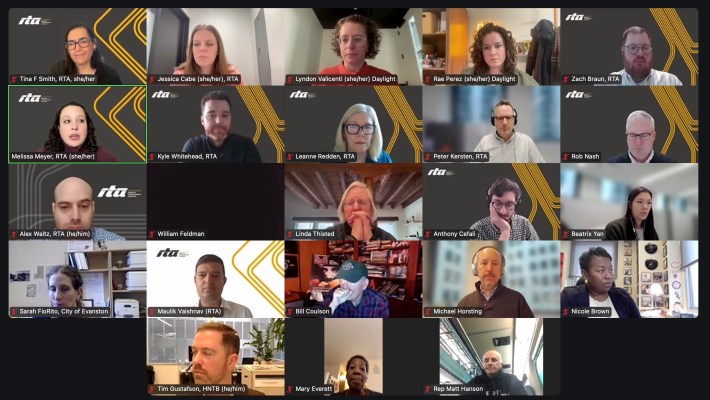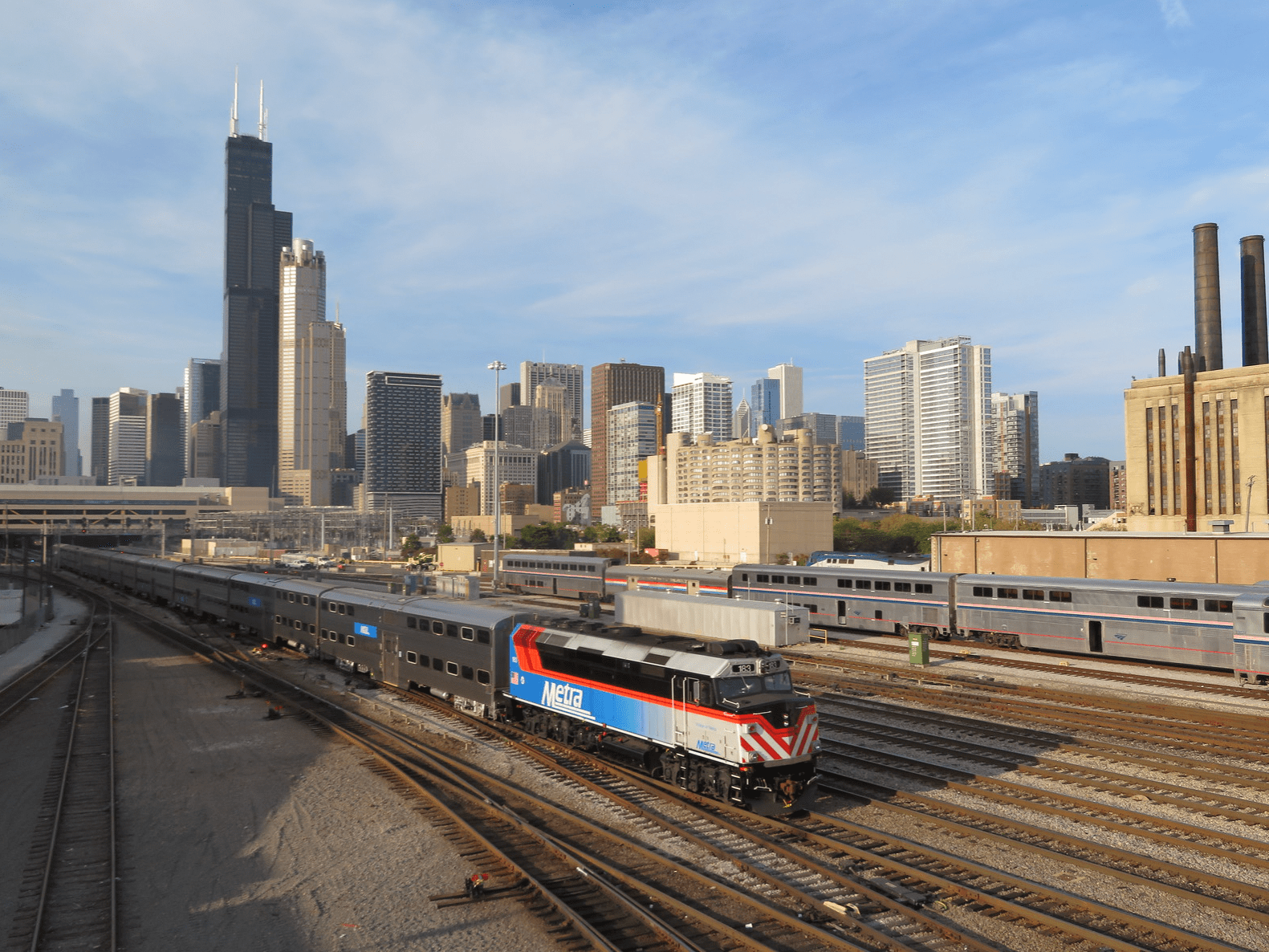
As Streetsblog Chicago readers know well, our region is facing a projected $770 million total transit budget gap in 2026. Last week, the Regional Transportation Authority, which oversees the CTA, Pace, and Metra, gave an update about the state of local public transportation at an online meeting of the Transit Is The Answer Coalition. The goal of this plan and the alliance is to win sustainable funding for bus and train service, and improve the system.
According to RTA Communications Manager Melissa Meyer, the agency is required to create a strategic plan for Chicagoland transportation system every five years. The Transit Is the Answer Plan was released in December 2022.
"In spite of the challenges, this is a very exciting time for transit," Meyer said during the meeting. "In 2024, ridership continued to grow at double-digit percentages for the third year in a row. More than 360 million rides were taken across the system. CTA, Metra, and Pace continued to make improvements like adding back service or bringing the amount of buses and trains either to the level they were before COVID or, in many cases, even beyond. They also debuted new options like expanding Pace Pulse; responding to rider needs [by] making riding the system easier than ever with changes like revamping Metra's fare structure; eliminating transfer fees between CTA and Pace; and more."
In addition, the three agencies are collaborating to launch a regional day pass allowing riders to use all three systems all day for the same price, Meyer said. She also noted that last month the CTA secured $1.9 billion in federal funding for the $5.7 billion Red Line Extension project. She added that the CTA and Pace recently received a total of of $58.25 million in Illinois EPA grant money that will allow the agencies to buy nearly 60 electric buses, which she said is a significant step towards reaching zero bus emissions by 2040.
(Even gasoline-powered buses are effective at reducing emissions by replacing car trips – if bus service is fast and reliable enough to attract people who have other options. So compared to electric buses, camera-enforced bus-only lanes are a more cost-effective way to fight climate change, but they're a heavier political lift. - Ed.)
RTA Executive Director Leanne Redden discussed developments that are coming up, based on many years of engagement with service boards and their staff, legislators, and other stakeholders such as people who attend these meetings. "Our goal and the hope is that we build on this vision in the coming weeks and months and really refine and specifically add more detail to sort of plan, so that the system that we envision as adopted in Transit is the Answer, which is more safe, reliable, accessible public transit that connects people to opportunity that advances equity and combats climate change, can truly become a reality in our region," she said.

Recently, Streetsblog interviewed Illinois legislators and transit advocates Rep. Kam Buckner (D-26th) and Sen. Ram Villalam (D-8th) about securing additional state money for to plug the public transportation budget hole. A recurring theme in these conversations was, "there will be no funding from Springfield without reform." That is, a requirement for more cash is a more efficiently and effectively run Chicagoland transit system.
Redden echoed that sentiment during last week's meeting. She said that, instead of distributing key responsibilities across multiple agencies, the RTA's proposal for reform, called "Transforming Transit", would give the umbrella agency more authority over key parts of the system. These would include fares, service quality, and capital investment.
"A strengthened RTA would set regional fare policy and lead joint procurement with CTA, Metra, and Pace in the future to develop the next generation of universal fare payment system," Redden said. "Additionally, the RTA will house a rider hub for all fare programs and customer service issues, ensuring that all riders have access to simple and easy-to-understand fares and integrated information across all stations and stops."
RTA Government Affairs Principal Kyle Whitehead, previously with the Active Transportation Alliance, moderated a Q&A during the meeting. One of the questions submitted by the attendees was a request for more info about the RTA's plan to make the Chicagoland transit network more cohesive.
"Obviously, the reform would make it easier to come in at the front end, but we have a planning group of regional coordination," said RTA Deputy Executive Director for Planning and Capital Programming Maulik Vaishnav. "There's a lot of coordination that happens right now. Some of it, frankly, goes unnoticed at times, but as schedules change every few months, our teams work together. We have an expanding interagency signage program so that inherently gives RTA a lot of access before the public on how the schedules may change. But just given how these processes are set up operationally, things happen really quickly in terms of the tweaks and changes that happen every few months. And it's important to let the service boards continue to do the parts of working with their unions and other components where a regional agency wouldn't have that big of a role. They're best positioned to do it. But then, when it comes to the rider's experience being seamless, we will continue to step in and expand that further."
At the end of the meeting, the RTA provided a list of ways to stay in the loop (no pun intended) about future local transit matters. That can sign sign on to be part of the Transit is the Answer Coalition, attend future coalition meetings, and watch for a call to write your legislators later this spring in the Regional Transit Newsletter.

Did you appreciate this post? Streetsblog Chicago is currently fundraising to help cover our 2025-26 budget. If you appreciate our reporting and advocacy on local sustainable transportation issues, please consider making a tax-deductible donation here. Thank you!




